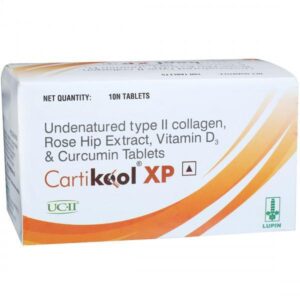HCI + VITAMIN D + VITAMIN D3 IP
Hci: I’m sorry, but “HCI” is not a specific drug name. HCI is an abbreviation commonly used to refer to hydrochloride, which is a salt commonly attached to the active ingredient in many drugs to increase their solubility. Can you please provide the complete name of the drug you would like information about?
Vitamin D: Vitamin D is a fat-soluble vitamin that plays an important role in regulating calcium and phosphate levels in the body. It is primarily obtained through exposure to sunlight, but it can also be obtained from certain foods and supplements.
The main use of vitamin D is to prevent and treat vitamin D deficiency, which can lead to bone disorders such as rickets in children and osteomalacia in adults. Additionally, vitamin D has been studied for its potential role in preventing various chronic diseases, including cardiovascular disease, autoimmune disorders, and certain cancers. However, more research is needed to establish these associations definitively.
The mechanism of action of vitamin D involves its conversion to its active form, calcitriol, in the liver and kidneys. Calcitriol acts on the intestines, promoting the absorption of calcium and phosphate, and on the bones, helping to regulate the release of these minerals.
The recommended dose of vitamin D varies depending on factors such as age, underlying health conditions, and the severity of deficiency. For example, the recommended daily intake for adults ranges from 600-800 IU (International Units), while those with severe deficiency might require higher doses prescribed by a healthcare professional.
Vitamin D is generally considered safe when taken within the recommended dosage range. However, excessive intake can lead to vitamin D toxicity, which can cause symptoms such as nausea, vomiting, confusion, and excessive thirst. Long-term excessive intake of vitamin D can lead to hypercalcemia, a condition characterized by high levels of calcium in the blood, which can have serious health consequences.
It is important to note that vitamin D supplements should be taken under the guidance of a healthcare professional, as they can interact with certain medications and medical conditions. Additionally, the best way to ensure adequate vitamin D levels is through a balanced diet and sensible sun exposure.
Vitamin D3 Ip: Vitamin D3 IP (also known as cholecalciferol) is a form of vitamin D that is used in the treatment and prevention of vitamin D deficiency. It is available as an oral supplement.
Vitamin D3 IP is converted in the body to its active form, calcitriol, which plays a crucial role in maintaining calcium and phosphate balance in the body. It helps in the absorption of calcium and phosphate from the intestines and promotes their utilization for bone mineralization. It also regulates the levels of parathyroid hormone, which is responsible for maintaining calcium homeostasis.
The dose of Vitamin D3 IP might vary depending on the individual’s age, health condition, and the severity of the deficiency. It is typically recommended to take 400 to 800 international units (IU) per day for adults. However, in cases of severe deficiency, higher doses may be required, which should only be taken under medical supervision.
Like any other medication, Vitamin D3 IP may have side effects. Common side effects include nausea, vomiting, constipation, loss of appetite, weight loss, and an increased risk of kidney stones. In rare cases, excessive intake of Vitamin D3 IP can lead to vitamin D toxicity, characterized by symptoms such as confusion, excessive thirst, frequent urination, and abnormal heart rhythm. It is important to consult a healthcare professional before starting Vitamin D3 IP supplementation to determine the appropriate dosage and monitor for any potential side effects or interactions with other medications.


